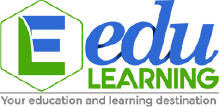In the rapidly evolving global landscape, training organisations have a crucial role in equipping students not just with subject matter expertise but also with the skills necessary for effective cross-cultural communication and collaboration. This preparation is vital for their success in a world where interactions frequently transcend geographical and cultural boundaries.
Strategies for Preparing Students for an Interconnected World:
Digital Literacy: Teach students the efficient use of technology for communication, research, and collaboration. Digital literacy is foundational in a world where digital platforms are the primary modes of interaction.
Modelling Online Behavior: Instructors should demonstrate appropriate online conduct, setting an example in digital etiquette, privacy management, and respectful communication.
Encouraging Critical Thinking: Equip students with the skills to analyse online information critically, discerning fact from fiction and reliable sources from misleading ones.
Promoting Digital Citizenship: Educate students on responsible and ethical digital behaviours, emphasising the importance of avoiding plagiarism, respecting online communities, and understanding the impact of their digital actions.
Developing Positive Online Identities: Encourage students to create and maintain a positive online presence, reflecting their best qualities and building a favourable digital reputation.
Privacy Protection: Instruct students on safeguarding their personal information online through strong passwords, awareness of privacy settings, and recognising potential online threats like phishing scams.
Proactive Approach to Cyberbullying: Provide guidance on identifying, reporting, and dealing with cyberbullying, ensuring students understand the importance of a safe online environment.
Understanding Digital Footprints: Educate about the permanence of digital actions and the importance of conscientious online behaviour.
Finding Trustworthy Sources: Teach students how to evaluate the credibility of online sources, enhancing their ability to access reliable information.
Responsible Technology Use: Reinforce the importance of ethical technology use, including respecting intellectual property and online etiquette.
FAQs:
1. Why is it important to prepare students for an interconnected world?
Preparation for an interconnected world is essential for students to successfully navigate and contribute to a globalised society where digital communication and multicultural interactions are commonplace.
2. What is digital literacy, and why is it essential for students in today's world?
Digital literacy refers to the ability to use technology effectively for various purposes, including communication, information processing, and online collaboration. It's essential for students to effectively participate in a digitally-driven world.
3. How can a training organisation promote digital citizenship among students?
By educating students on the ethical and responsible use of technology, emphasising the importance of online safety, respecting digital rights and responsibilities, and fostering positive online interactions.
By incorporating these strategies, training organisations can significantly contribute to preparing students for the challenges and opportunities of a highly interconnected and digital world.















































